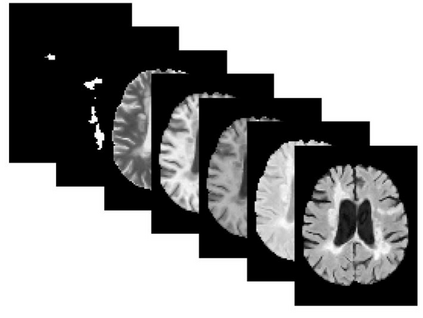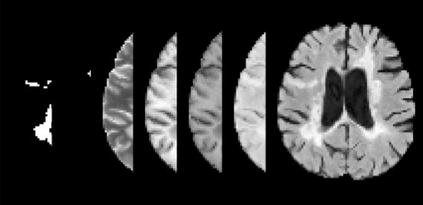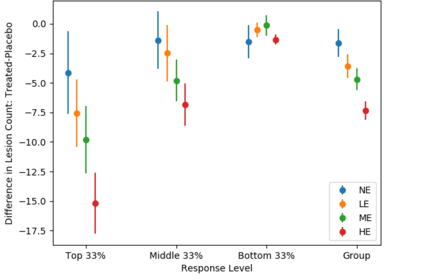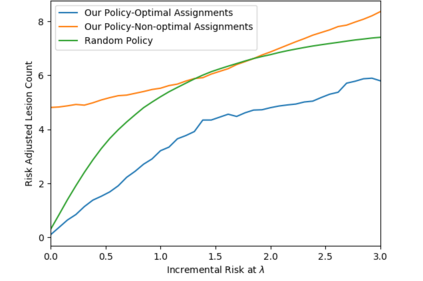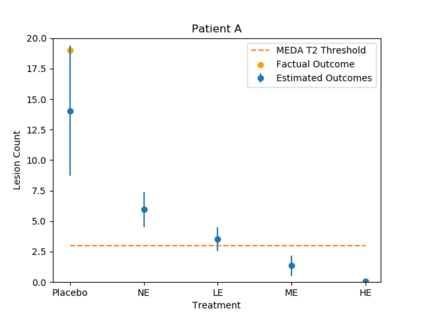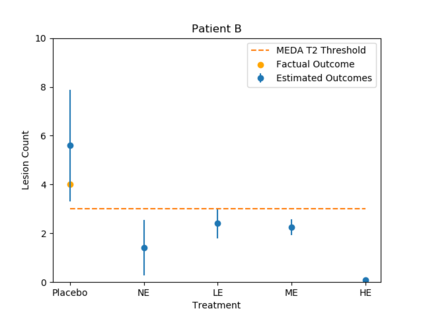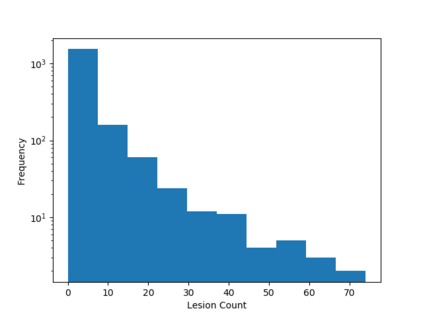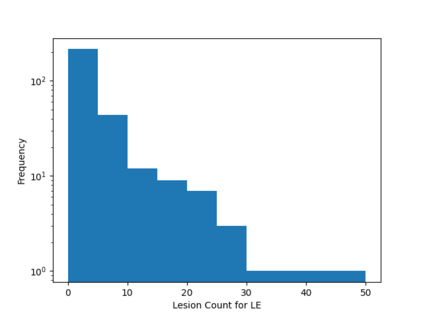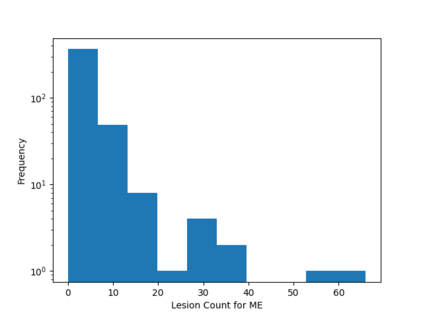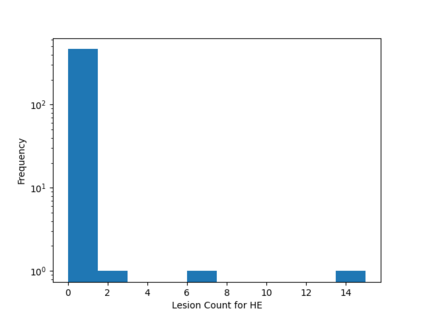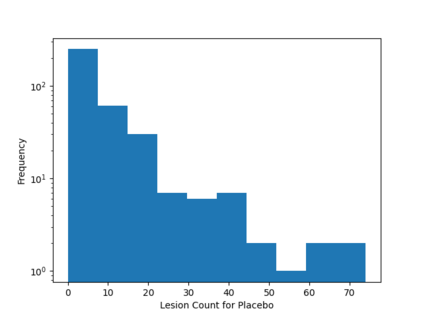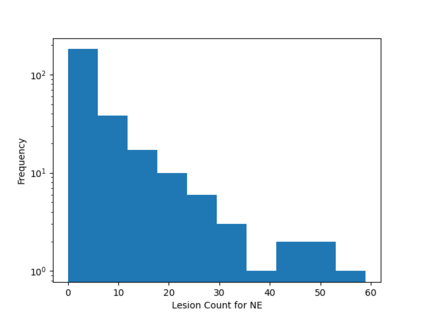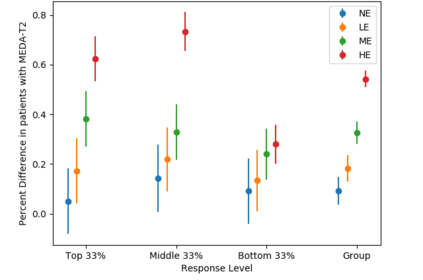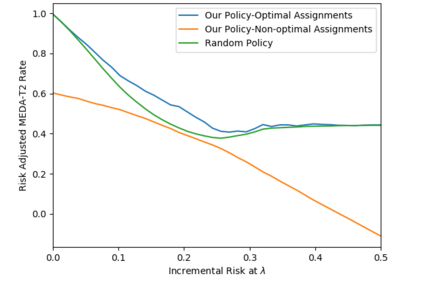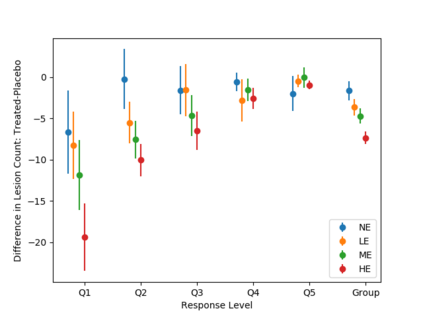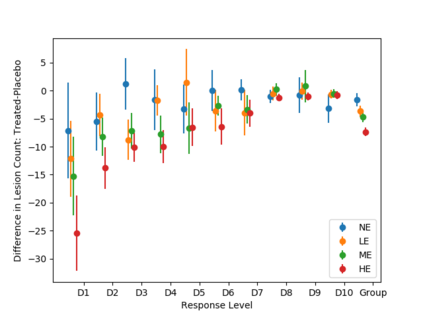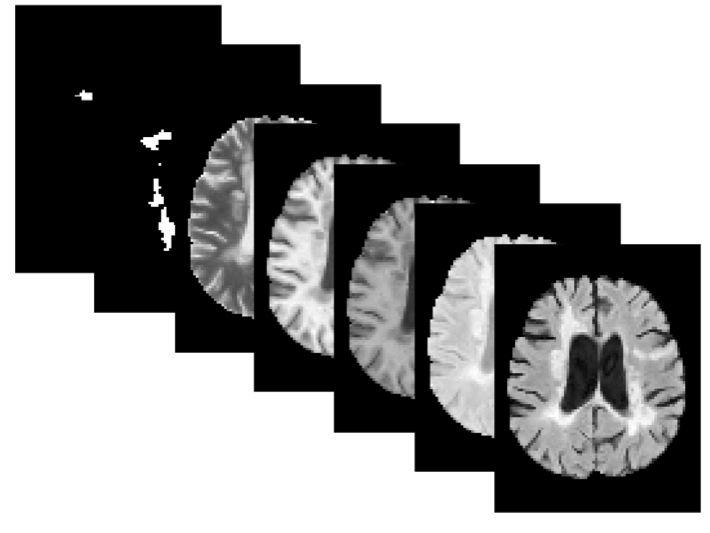Precision medicine for chronic diseases such as multiple sclerosis (MS) involves choosing a treatment which best balances efficacy and side effects/preferences for individual patients. Making this choice as early as possible is important, as delays in finding an effective therapy can lead to irreversible disability accrual. To this end, we present the first deep neural network model for individualized treatment decisions from baseline magnetic resonance imaging (MRI) (with clinical information if available) for MS patients. Our model (a) predicts future new and enlarging T2 weighted (NE-T2) lesion counts on follow-up MRI on multiple treatments and (b) estimates the conditional average treatment effect (CATE), as defined by the predicted future suppression of NE-T2 lesions, between different treatment options relative to placebo. Our model is validated on a proprietary federated dataset of 1817 multi-sequence MRIs acquired from MS patients during four multi-centre randomized clinical trials. Our framework achieves high average precision in the binarized regression of future NE-T2 lesions on five different treatments, identifies heterogeneous treatment effects, and provides a personalized treatment recommendation that accounts for treatment-associated risk (e.g. side effects, patient preference, administration difficulties).
翻译:为治疗慢性病,如多发性硬化综合症(MS)的精密医学涉及选择一种最能平衡对个别病人的功效和副作用/偏重的治疗方法。尽早作出这一选择很重要,因为寻找有效疗法方面的拖延可能导致不可逆转的残疾累积。为此,我们为慢性病病人提供了第一个通过基线磁共振成像(如果有临床信息,则提供临床信息)进行个性化治疗决策的深神经网络模型。我们的模型(a)预测未来新的和扩展的T2加权(NE-T2)的偏差计数是后续的多重治疗MRI,(b)估计根据预测未来抑制NE-T2损伤对安慰物的不同治疗方案所定义的有条件平均治疗效果(CATE ) 。我们的模型在四个多中心随机临床试验期间从MS病人那里获得的1817年多序列MMSIs专有制数据集(如果有临床信息的话)。我们的模型在五个不同治疗方法的未来NE-T2损伤的双向回归中达到了很高的平均精确度精确度,确定了混合治疗效果,并提供了个人风险处理困难。

